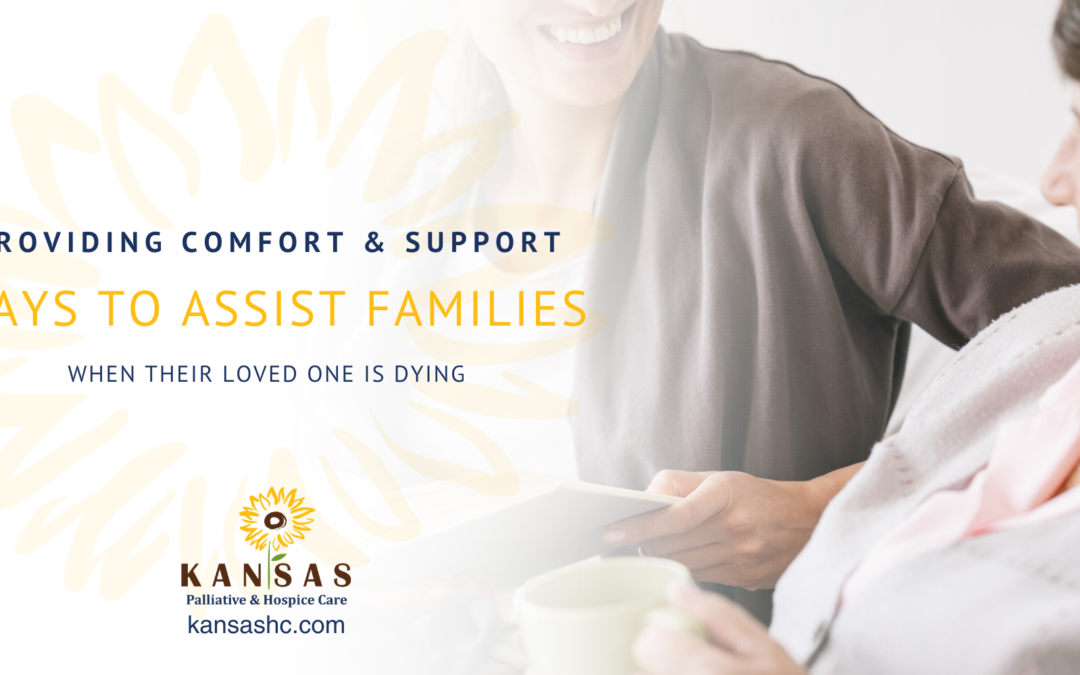We understand the immense challenges families face when a loved one is in the final stages of their life. The emotional, physical, and spiritual toll can be overwhelming. That’s why we believe in the power of community and compassion to provide comfort and support during this difficult time. Below are some practical ways to assist a family when their loved one is dying, based on our experience, research, and insights from experts in end-of-life care.
1. Be Present and Listen
One of the most meaningful ways to assist a family during such a profound experience is to be present and attentive. Take the time to listen actively and without judgment. Allow them to share their thoughts, emotions, and concerns. Being a compassionate presence can offer comfort and solace amid their pain.
According to an article published in Behavioral Sciences, listening and providing emotional support significantly impact the overall well-being of families coping with end-of-life situations. Your presence and compassionate listening can help alleviate their burden and provide much-needed support.
Here are some tips for providing emotional support to families dealing with end-of-life situations:
- Listen without judgment
- Be patient
- Don’t try to fix emotional problems
- Ask open questions
- Allow them to talk freely about how they’re feeling
- Help them to feel relaxed
- Give your undivided attention to the person speaking
- Maintain eye contact
- Use body language that conveys empathy and understanding
- Show genuine interest in their concerns, fears, and desires
2. Offer Practical Help
Practical assistance can make a tremendous difference for families facing the challenges of caring for a dying loved one. Whether it’s running errands, preparing meals, or providing transportation, offering help with daily tasks can relieve some of the burdens and allow families to focus on the well-being of their loved one.
A study published in the Journal of Palliative Medicine emphasizes the importance of practical support in easing the caregiving responsibilities of families. This kind of assistance lightens their load and shows that you care and are there to support them during this difficult time.
3. Respect Their Wishes and Choices
Every family’s journey through the end-of-life process is unique, and respecting their wishes and choices is crucial. This includes honoring their cultural, religious, and personal beliefs surrounding death and dying. Engage in open and honest conversations about their preferences for care and support, and strive to align your actions with their desires.
Research conducted by the National Hospice & Palliative Care Organization highlights the importance of person-centered care when supporting families during the end-of-life journey. By respecting their autonomy and individuality, you can provide comfort and support that truly reflects their needs and values.
4. Connect Them to Resources
As a valued community member, you can play a vital role in connecting families with resources to enhance their well-being and provide additional support. This may include recommending support groups, counseling services, or other hospice care organizations specializing in end-of-life support. You can extend your support beyond your immediate presence by linking families with these invaluable resources.
An article in the Hospice Foundation of America highlights the positive impact of facilitated support groups on the emotional well-being of families coping with the impending death of a loved one. Offering these connections can provide families with a network of understanding individuals who share similar experiences and emotions.
5. Practice Self-Care
Supporting a family during the dying process can be emotionally and physically demanding for you and for the family. Prioritizing self-care is essential to maintain the ability to assist them effectively. Recognize your limits and seek support from other caregivers, professionals, or support networks. By taking care of yourself, you can continue to be a compassionate and reliable source of comfort and support for the family. By providing yourself with the care you need, you can sustain your efforts in supporting the family throughout their journey.
Compassionate Support in End-Of-Life Care
By implementing these practical and compassionate strategies, you can assist families as they navigate the challenging experiences that arise when a loved one is dying. Your presence, active listening, practical help, respect for their choices, and connections to resources can significantly impact their journey toward healing and finding solace.
Remember, you are not alone in this endeavor. Hospice care professionals and community resources are available to provide guidance and assistance. Together, we can support families, providing them with the comfort and support they need during this vulnerable time.
Need help? Contact us at (913) 353-6525.


